Don’t stress over homeschooling preschool and kindergarten. It doesn’t need to be anything formal at all. And even if your children are developmentally ready to “do school” make sure that you keep it play-based as much as possible. Some hands-on learning, great books, and a plan are really all you need. Yes, homeschooling preschool and kindergarten can be both simple and fun for you and your kids!
[The following post contains affiliate links. You can read my disclosure here.]
A Simple Guide for How to Homeschool Preschool and Kindergarten
1. Begin to discover what you believe.
Notice I said to begin. You do not have to have homeschooling completely figured out to get started. And when you keep it homeschooling preschool and kindergarten simple, you will have the time to learn more as you do it.
A Teacher’s Education
This is a great time for you to do a little teacher education for a fraction of the cost of an education degree 😉 These books on homeschooling helped influence my “heart-to-heart homeschooling” philosophy of education. (And no, you don’t have to read them all. Choose the ones that speak to you!)
Although Brave Writer’s The Writer’s Jungle appears to be about how to teach writing (and it is!), TWJ also became a part of our philosophy. It helped me create a language rich, more relaxed homeschooling environment. You don’t need it for preschool and kindergarten, but this is a great time for you to start reading and learning!
Since then some other wonderful books on homeschooling have been published, too. I think you’ll love them both.
A Philosophy of Education
Let me say it again: you don’t have to figure all of this out to get started homeschooling! But you can begin to form your own philosophy of education. And no matter where you are on your journey, you can let Scripture guide you in how you homeschool. You can read more about both:
2. Set a strong foundation.
The most important thing you can do for your children is to build their education on the foundation of strong relationships with you and with God. Teach them that they are uniquely created in the image of God. Help them to understand that they are loved unconditionally and they are secure.
Giving them appropriate boundaries and disciplining them will be more important during this time than if you do a math lesson each day. The formation of good habits and character now reaps lasting rewards. But how?
- Start with the heart of your children – How to Unlock Your Unique Child’s Heart
- Cultivate a team mentality in your family – One Simple Mindset Change That Will Make You a Stronger Family
- Help them to know Jesus – The Best Way to Start Your Day with Food, Faith, and Family
Teaching young children about Jesus doesn’t need to be complicated. These are some of my favorites for young children. We would simply read about them and talk. Our faith isn’t something separate from our life, so talking about Jesus wasn’t confined to “Bible Time.”
3. Teach in a way that is developmentally appropriate and fun.
Dr. Ruth Beechick’s The Three R’s gives you a simple and practical guide.
4. Create a simple plan.
I promise, your preschool and kindergarten children do not need to do all of the subjects, every day of the week! So much of their leaning will occur naturally and they don’t even need to know they are “doing school” (unless they are begging you to do just that).
– Choose your priorities.
These were our personal choices for kindergarten. We didn’t do “preschool” in a formal sense. But by the time they were in kindergarten then knew the alphabet and counted and sorted. They could recognize patterns and other things. I just wove those things into everyday life. And I read aloud to them from the time they were babies.
- Read – I continued to read aloud and began a simple phonics program with each of them when they reached kindergarten.
- Write – We used Handwriting without Tears with my youngest son. I’ll share more about it later, but there is both a preschool “getting ready” and kindergarten curriculum.
- Do math – In What Would I Do Differently in Our Homeschool? The Early Years, you will find that I would do this particular subject differently. Yes, I would still cover it intentionally and regularly, but with more hands-on games and activities. I would be way more stealth about it like any good ninja homeschooling mom.
What subjects do you feel your kids need to do on a regular, perhaps daily schedule, especially when they reach kindergarten? We chose the 3Rs, but your list could look different.
– Weave other studies into your homeschool routine.
Think through these questions:
- What other subjects do you want to study?
- Does you state have any laws about what needs to be covered in kindergarten? (In many states it is’t even mandatory to teach kindergarten. Check you state laws about ages and requirements.)
- What subjects have your children shown an interest in? What are they asking about?
Once you have decided what other areas you and your children want to study, remember that children learn through play. You don’t have to do this (or even your core subjects) in a formal way.
Then you can cover these areas as you want or need to. For example, you might have one day a week where you get out the art supplies and do arts and crafts. On another day you might get a fun science experiment book and do some of the experiments together.
– Combine subjects.
Don’t think with a traditional school mentality where kids sit down and do reading, then writing, then math, etc.
You can read aloud a great story one week, and then next read from a non-fiction book about animals for nature study. Sometimes you may use a game to teach math, and know you are also teaching your kids how to follow instructions at the same time. Math might include painting their numbers with finger paint. Drawing may be from a leaf or flower they found outside. Combine, play, and enjoy!
5. Be encouraged along the way.
Homeschooling preschool and kindergarten isn’t always easy. Well, the actual “teaching” doesn’t need to be difficult, but the whole parenting thing is happening too. Sometimes we are tired or grumpy. Sometimes the kids are uncooperative.
When you are tired and overwhelmed or frustrated, you may a need a different perspective to help you through. I would love to encourage you on your journey!
And if you need a resource to help you build a strong foundation, check out Growing Faith: Establishing Strong Deep Roots!
How Much Do You Really Need for Homeschooling Preschool and Kindergarten?
You can keep it as simple and inexpensive as you want with young learners. So many resources can be borrowed from the library, and often learning activities can be done with household items.
I’m going to share a list of resources so you can pick and choose ones that work well for your children. You do NOT need all of these things for homeschooling preschool and kindergarten.
If you are on a budget, you can use these ideas to make your own hands-on activities. You can find things you already own. As homeschooling moms we either spend more time or more money. But when the grandparents, aunts, and uncles ask what they can get the kids for Christmas or their birthdays, you can share ideas that are both educational and fun 🙌🏻
Resources for Homeschooling Preschool and Kindergarten.
He are just a few of the many books filled with hands-on activities for young learners. (And Pinterest and google are also great places to find ideas.)
Imaginative Play & Learning for Preschool and Kindergarten
Fred Rodgers, better know to most of us as Mr. Rodgers, once said,
Play is often talked about as if it were a relief from serious learning. But for children play is serious learning. Play is really the work of childhood.
This is a great farm set for imaginative play. So many toys today make the noises for the kids, but this one lets your kids do the playing.
Another great collection from Melissa & Doug: the town play sets.
For a couple of years I was the nursery director at our church. One of these most popular toys for both boys and girls, week after week, was the play kitchen.
Of course with a kitchen, you may want to be sure to shop for some food. Perfect for playing grocery store too 🙂
And don’t forget Thomas the Tank Engine (or other wooden train sets). My youngest LOVED Thomas and I still have all of his trains. I can’t wait to get on the floor with littles again and build huge train layouts 💛
 Art & Creativity Activities for Homeschooling Preschool and Kindergarten
Art & Creativity Activities for Homeschooling Preschool and Kindergarten
Maybe you are great at coming up with your own ideas! But some of us need a little help 😉
These were my favorite markers as a child, so of course I included them. Young children really enjoy drawing and coloring on butcher paper covering a table. (Just make sure that it doesn’t bleed through on your favorite table!)
Fine Motor & Problem Solving Skills for Homeschooling Preschool and Kindergarten
My boys loved this type of sand. It sticks together just like wet sand at the beach. We had it in a big plastic tub and brought it out on the floor of the kitchen or played with it on our back porch. It comes in multiple colors!
This may seem like an obvious one, but don’t underestimate the power of the building block! I love sets that leave the building plans to our creative children. But my boys really enjoyed the sets with instructions for making specific things. (And what a fun way to learn to follow instructions!)
Building blocks are also a great tool for teaching math! For example, count the blocks as you stack them. Put two like pieces together and say “whole”, then separate them and say “half”. The possibilities are endless.
Lacing Beads and Lace & Trace Activities
They are a classics for a reason. Great for developing fine motor skills and keeping kids busy on car trips and in waiting rooms.
Melissa and Doug Clay Play Set or Alex Art Wooden Dough Tools Set
Whether you buy play dough or make your own, a few tools will encourage your children’s creativity while strengthening their fine-motor skills.
Can you tell I’m a big fan of Melissa & Doug wooden toys? Yes, they cost a bit more, but they are durable. And the pieces are easy for young learners to hold. But there are other options! Puzzles require patience, problem-solving skills, hand-eye coordination, fine-motor skills and are simply fun.
Floor Puzzles (I’m not sure why, but we always loved big floor puzzles!)
Homeschooling Math for Preschool and Kindergarten
These books all have games and activities for teaching math to young children. You really don’t have to have a math curriculum to give your children a strong math foundation.
Count on the Train Floor Puzzle
Counting Bears with Add-On Pattern Cards
This counting bears set not only helps you children learn basic math skills in a fun way, it also helps develop fine motor skills and hand/eye coordination.
Hi Ho Cherry-O, Chutes and Ladders, & Don’t Wake Daddy
Don’t underestimate the power of teaching with games. Counting, recognizing colors, taking turns, following instructions and rules, and winning and losing gracefully are all a part of what kids learn.
The abacus is a tried and true way of teaching young children (and even older) math skills.
This is a great post on teaching addition and subtraction to young children:
Teaching Addition and Subtraction to Preschool from Growing Curious Minds
Homeschooling Language Arts for Preschool and Kindergarten
Language Arts can be overwhelming if you try to teach it as individual subjects such as reading, vocabulary, spelling, grammar, etc. But you can teach it more simply through natural methods.
- What You Need to Know About How to Teach Language Arts
- What You Need to Know About How to Use Copywork
- How to Use Narration in Your Homeschool
- The Amazing Benefits of Reading Aloud to Your Kids
Letter Construction Activity Set
A fun way to learn how letters are formed as well as hand/eye coordination and fine motor skills.
Handwriting Without Tears Resources
This is our favorite for teaching handwriting. It is based on child development and focuses on how to form letters correctly. It’s one of the few programs that has a developmentally appropriate preschool curriculum too!
Poetry & Stories for Young Children
These are all great collections of stories and poems. You don’t have to have a lot of individual books to read aloud from because these collections have so many different stories and poems in them.
Listening Skills
My boys LOVED Jim Weiss CDs. They listen to them during afternoon quiet time and often before bed.
Science Skills for Preschool and Kindergarten
I’ve teamed up with Homeschool Mastery Academy to create delightfully different curriculum for homeschool groups and co-ops. But the best part is these resources can also be used as a family. (Or have even more fun by getting some friends together to do it with you.) This is a hands-on curriculum for exploring the senses perfect for preschool and kindergarten age children. Older siblings can join in too!
Science Experiments for Young Learners
Preschool and kindergarten aged children love to discover new things. They show such wonder and excitement. Let them wonder. Let them explore nature and do fun experiments. Science at this age can be so much fun as they discover the world around them.
There are so many fun books on science!
And don’t forget the show!
Fun Science Lessons for Preschool and Kindergarten from my friend Emily at Table Life Blog
- Sink or Float: A Science Experiment for Young Learners
- Imagination on the Loose: Alphabet Scavenger Hunt & Nature Walk
Geography Skills for Preschool and Kindergarten
Many young kids love maps. Let them explore their world through books, field trips, and even vacations. They may not really understand it all at this point, but you are laying a foundation.
Hands-On Resources
Books for Young Learners
Some fun lessons from my friends 🙂
3 No-Fuss Ways to Explore Geography with Young Kids from Table Life Blog
Montessori Geography Lesson on Land, Air and Water from Growing Curious Minds
Homeschool Mastery Academy
At Homeschool Mastery Academy you’ll find multiple resources for teaching your preschool and kindergarten students, and even monthly calendars with your activities planned. These are just a few!
Ultimate Preschool Super Hero Learning Bundle with ABCs and Numbers
ABC Learning Printable Pack with Mini Book Flash Card Set
Learn My Numbers Counting Sheets
Woodland Creatures Fall Theme Preschool Activity Pack + Calendar
Now Go Have Some Fun Homeschooling Preschool and Kindergarten!
Homeschooling preschool and kindergarten should be fun. Keep it simple and enjoy it with them!
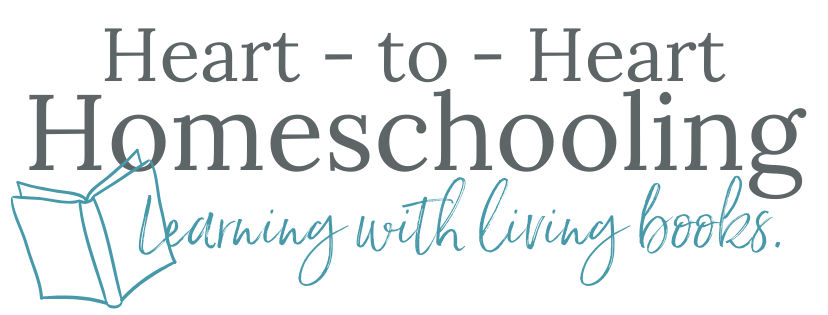


















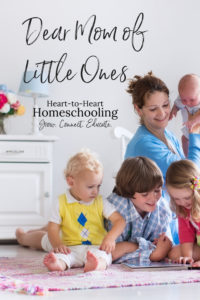



























































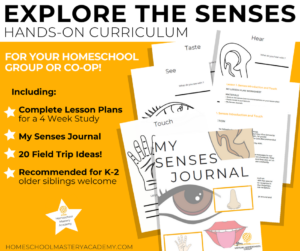
















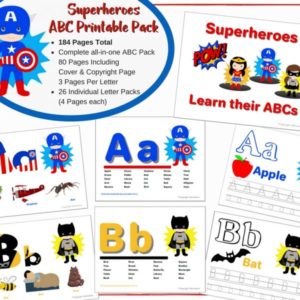
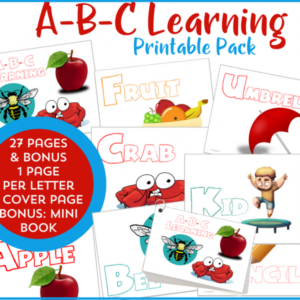
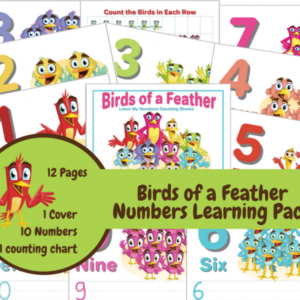
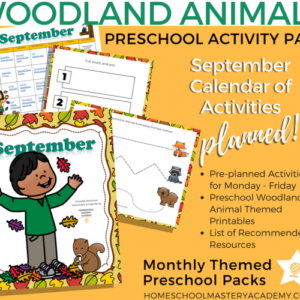
Awesome wrap! Thank you for sharing these very useful insights and resources. I’m new to home education and really appreciate this helpful article.
You are so welcome!